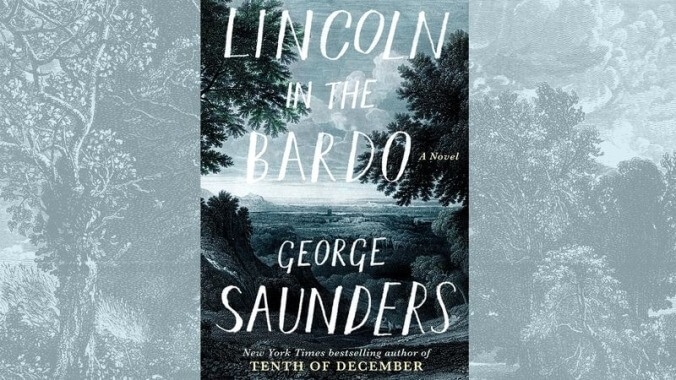George Saunders’ new novel will blow your fucking mind

George Saunders sets a high bar: His short stories, assembled in such fever-dream collections as Tenth Of December and Pastoralia, are feats of astonishing storytelling as much as they are the best satire of modern America. Saunders breaks with tradition in his new Lincoln In The Bardo, his first novel and a decided departure from previous works.
Lincoln In The Bardo is a postmodern masterpiece. About half the novel is told through dozens of characters contributing to the narrative, which reads more like a tumbling conversation than a traditional single-character voice. The other half’s piecemeal approach is accomplished through an assemblage of real historical documents, mostly letters and memoirs from 1862, one year into the Civil War. Saunders’ genius in Lincoln In The Bardo is the culminating effect of the disparate parcels of information that, taken together, create a spellbinding story of love and loss.
Abraham Lincoln’s son has died. The entirety of Lincoln In The Bardo takes place over the course of a single night in the bardo—the Tibetan concept of the astral soul’s state after death, before rebirth, and combined here with a Christian idea of purgatory. Willie Lincoln is there, dead, in a ghostlike state with all the others who have died but not gone on. He’s visited by his father, still living, who returns to the cemetery after his son’s funeral. But the real main characters are hans vollman, roger blevins iii, and the reverend everly thomas (down-styled names replicated here in keeping with the text’s treatment of them, one gathers, to indicate their insubstantial, liminal states). It’s through these three characters that the story in the bardo unfolds, as they interrupt and speak over each other to describe what happens the night Willie joins them.
Saunders is best known for his satirical bite, but Lincoln In The Bardo is a deeper examination of life, explored through the dead, unable to move on for various reasons. He’s never written anything quite so poignant and moving as this story about death. There is certainly surreal humor, with Saunders bringing his signature flair for drama and heightened silliness to the small anecdotes of the characters who hover between this world and the next, be it in the trio of bachelors who gallivant amid the graveyard and jauntily throw hats around or the phrase “matterlightblooming phenomenon” to describe the instant when individuals finally succumb to the pull of the next world, their shadows leaving the bardo forever. This is also a deeply moving story of accepting death. Tied to the cemetery they’re buried in because of their regrets, the dead characters fixate on the lives they stopped living, in some cases centuries ago.
